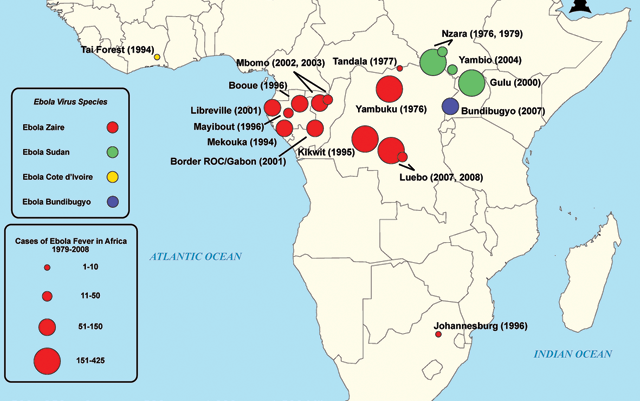Staff Reporter
West Africa is struggling with a deadly outbreak of the Ebola virus. There were recent scares in Namibia where a suspected case of Ebola was discovered at Windhoek’s Hosea Kutako leading to a 20 hour quarantine of passengers. The Botswana Gazette has established that at least 20 visitors from the affected areas came to Botswana and were neither screened nor subjected to an inspection of any kind. The 20 expatriates’ names (known to this publication) all entered at Sir Seretse Khama International airport between the 27th July and 3rd of August. One of the expatriates from Liberia confirmed that he was not attended to in a way he expected. “It was vigorous in South Africa; I was worried that I will be subjected to the same here in Botswana. Surprisingly, I was not and while it was convenient for me, I wonder how safe it is for Batswana and other travellers. The incident though hitherto unreported has raised questions of whether Botswana has adequate measures in place to deal with the virus. There has been little communication from the Ministry of Health on the matter safe for a press release on Friday assuring the public that they were on ‘high alert’. A highly placed source has expressed concern at the lack of preparedness at the Ministry. “This is government. All the right talking has been done, we have spoken to the stakeholders that something needs to be done but nothing has been done.” The source said adding that Air Botswana and other airlines have been furnished with guidelines as per World Health Organisation (WHO) rules but no extra measures have been taken. “We’re not even sure that they have capacity and capability to comply” he added.
Some of the measures that are often used at points of entry by health officials are temperature-monitoring devices to detect those that may have the virus.
The problem with this measure according to a local doctor who asked not to be named is that those affected may not have a high temperature and with the virus having an incubation period of 2-21 days, “the possibility of infected people crossing into the country is quite high. In 1996 the virus found its way into South Africa though they were on high alert. We are simply not doing enough especially in the area of education and awareness,” the doctor said.
WHO has confirmed that this screening passengers at points of entry will have little impact. The organisation said that it would be very difficult to detect Ebola as symptoms are not specific. The virus can be passed on through contact with the bodily fluids of a person or corpse infected with the disease.
It can also spread if there is contact with, or handling of, wild animals, alive or dead, or their raw or undercooked meat.
MoH Permanent Secretary Dr Kolaatamo Malefho has said they monitor the situation at the borders and Airports through Port Health Posts. “When they identify a risk, we have isolation facilities ready in case we find ourselves in the situation”, he said. Malefho could not however explain how it would be possible for someone to go through nor why there is no visible public campaign at points of entry. It is understood that MoH does not think an outbreak of Ebola was likely. Ebola mainly occurs in Central Africa but the latest outbreak has spread to West Africa with devastating results. Only one case of Ebola has occurred in Southern Africa and that was in 1996 when a South African contracted it and died.
Last week, cases attributed to Ebola in four affected countries stood at 1 323 including 729 deaths.

